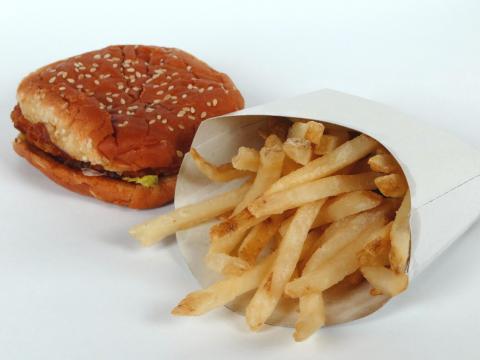
By reducing the size of the stomach and allowing for less calories, gastric bypass surgery is an efficient way of losing weight. After the surgery, key decisions need to be made regarding this new lifestyle and this includes diet and exercise. For the weight to stay off, high-protein foods are important and a balanced diet is a must. Therefore, there is a certain panic when someone suggests eating at a restaurant. Below are some suggestions of how to handle eating out when on a gastric bypass diet.
Gastric Bypass Diet Options For Eating Out
Main Dishes - After the bypass surgery, you will need to consume up to around 80 grams of protein per day so you will need to plan your meals around this. If you consult the nutritional information made available by the restaurant, you should find high-protein options that suit your needs. Depending on where you’re eating, salad with grilled meat, grilled chicken or beef, baked potato with cottage cheese, and a wrap sandwich are all good options. If you want to steer clear of pain and distress, avoid fatty foods and high-fat dressings.
Sides - With protein in your main meal, you can use the side dishes to get some fibre, minerals, and vitamins. For example, a healthy salad with low-fat dressing, baked potato with healthy sauce, corn cob, mashed potato, or even a portion of brown rice. Moving towards the choices that should be avoided, we would find fried rice, fries, baked beans, sweet potatoes, cranberry sauce, mac and cheese, biscuits, muffins, gravy, etc.
Drinks - Essentially, you will be absolutely fine as long as you avoid carbonated, high-sugar drinks. Therefore, no lemonade, Coke-cola, cream soda, Sprite, or Dr. Pepper. Instead, choose to go for water or unsweetened iced tea. In general, you should also avoid coffee because of the caffeine (unless your doctor tells you otherwise).
Desserts - Although restaurants rarely offer desserts that are free from sugar, there may be an option for you but always remember to check the nutritional information. Whilst a dessert may be free from sugar, it could be hiding a huge fat content. Unfortunately, the typical dessert options like parfaits, cakes, pies, ice cream, and cookies all contain too much sugar. If you consume too much sugar or fat after gastric bypass surgery, it leads to dumping syndrome and you will experience nausea, dizziness, abdominal distress, and diarrhoea. Rather than putting your body through this, why don’t you make sure you have a dessert waiting at home for when your meal at the restaurant is over? As a healthier option, you could go home and have a serving of fresh fruit with sugar-free pudding or jello.



